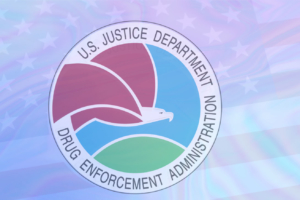
Harvard Law School’s Petrie-Flom Center for Health Law Policy, Biotechnology, and Bioethics announced Wednesday that it is launching the first academic initiative focused on psychedelics law and policy.
The Project on Psychedelics Law and Regulation (POPLAR), made possible through a Saisei Foundation grant, is a three-year project to promote safety, innovation, and equity in psychedelics research, commerce, and therapeutics.
Psychedelics research is reemerging after a longstanding prohibition and proving beneficial in the treatment of neurological and mental health conditions from traumatic brain injury to anxiety, depression, and addiction. Within the past four years, the Food and Drug Administration (FDA) has designated MDMA and psilocybin as breakthrough therapies for post-traumatic stress disorder (PTSD) and treatment-resistant depression, respectively. The first psychedelic medicines are poised to become FDA-approved medications within the next two years.
Seven U.S. cities have decriminalized the medicines, and last November, Oregon became the first state to legalize the therapeutic use of psilocybin. Analysts have projected the U.S. psychedelics market will reach $6.85 billion by 2027.
“Right now, there are a handful of psychedelics research centers at universities around the country. However, they are focused on clinical research,” said Mason Marks, MD, JD, Senior Fellow and Project Lead on POPLAR at the Petrie-Flom Center. “There is no systematic research being done on psychedelics law, and POPLAR will fill this gap.”
Dr. Marks is an authority on controlled substance regulation. He teaches Drug Law and Pharmaceutical Innovation at the University of New Hampshire Franklin Pierce School of Law, and serves on the Oregon Psilocybin Advisory Board, which advises the Oregon Health Authority on creating the first statewide industry for psilocybin services.
The POPLAR team will advance evidence-based psychedelics regulation in five key areas:
- Ethics in psychedelics research and therapeutics
- Challenges at the intersection of psychedelics and the intellectual property law
- Opportunities for federal support of psychedelics research
- Access to psychedelic therapies and equity in emerging psychedelics industries
- The role of psychedelics in healing trauma
“The Petrie-Flom Center is excited to add POPLAR to its research portfolio,” said I. Glenn Cohen, Faculty Director of the Petrie-Flom Center, James A. Attwood and Leslie Williams Professor of Law, and Deputy Dean at Harvard Law School. “In addition to developing the field of psychedelics law and policy, this innovative work will have broad implications for drug policy, pharmaceutical development, and intellectual property law more generally.”





